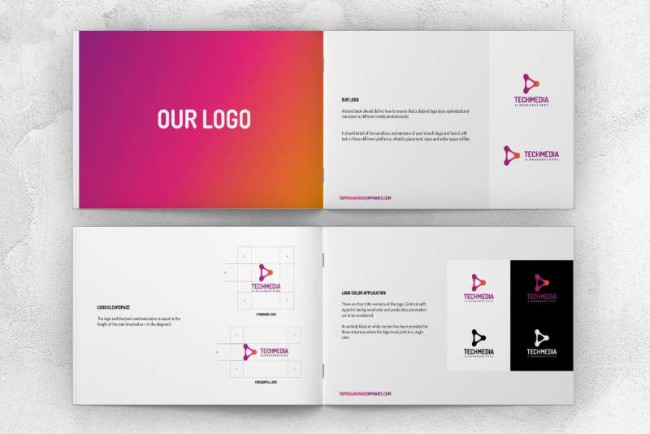
Building an online coaching empire
The coaching industry has developed as a transforming force in a dynamic society where personal and professional growth are at the forefront of human goals.
Unlike typical businesses, coaching operations focus on the intangible realm of guiding, encouraging, and unlocking individuals’ potential.
This article delves into the distinctive terrain of coaching firms, where success is intimately woven into the fabric of human connection, personal development, and the art of untapped potential.
Join us on a trip through the distinguishing features that set coaching businesses different in the business world.
Benefits of having a coaching business
1. Tailored help: Coaching provides tailored help, personalizing suggestions to clients’ specific needs and goals.
2. Skill Development: Clients can improve their personal and professional performance by enhancing their skills and knowledge through customized coaching.
3. Goal Achievement: Coaches assist clients in setting and achieving realistic objectives, which promotes a sense of success and drive.
4. Responsibility: Having a coach generates responsibility since clients are more likely to stick to their goals when they receive continual support and encouragement.
5. Clarity and Focus: Coaching assists individuals in gaining clarity on their values and priorities, allowing them to focus on what is genuinely important to them.
6. Self-Reflection: Coaches assist clients in self-reflection, allowing them to obtain insights into their own behaviours, beliefs, and issues.
7. Stress Reduction: Individuals can acquire stress management methods through good coaching, leading to greater well-being and resilience. Coaching boosts confidence by resolving self-doubt and helping clients to recognize and exploit their abilities.
8. Improved Communication: Coaches frequently work with clients to improve communication skills, assisting them in developing better personal and professional relationships.
9. Entrepreneurial Success: The benefits of coaching businesses that target entrepreneurs include assisting clients in navigating challenges, making educated decisions, and achieving success in their ventures.
How to build a coaching empire
1. Developing the correct mindset: for a coaching business is critical for success in a highly competitive market. As a coach, you must maintain a positive and growth-oriented mindset, always looking for ways to improve and learn.
This approach will not only assist your clients, but it will also keep you engaged and enthusiastic about your profession. It is also critical to believe in the importance of coaching and the impact it may have on people’s lives.
This will allow you to market your services with confidence and attract new clients.

2. A niche and target audience: are critical for every successful coaching business. It is critical to identify your specialization, the area in which you thrive and can provide the greatest value to your clients’ lives.
This could be in the form of job coaching, life coaching, health and wellness coaching, or anything else.
You can focus your marketing efforts and establish a distinctive selling point that sets you apart from other teachers by narrowing your niche.

3. Finding the correct product-market fit: is critical for success in the highly competitive coaching sector. It is critical for you to understand your target audience and their individual needs as a coach.
• What are the issues they are dealing with?
• What are their ambitions and goals?
These are critical things to ask while designing your coaching program. Understanding your ideal client allows you to personalize your services to their specific difficulties and provide answers that actually resonate with them.
This results not only in happy customers, but also in favourable word-of-mouth recommendations and a solid reputation in the coaching community.

4. For coaching business, the ICA (Ideal Customer Avatar): is a dedicated and ambitious individual looking for guidance and help to attain their personal and professional goals.
They are willing to invest in themselves in order to realize their greatest potential. The ICA values personal development and is dedicated to constant improvement.
They are driven and determined to make positive changes in their lives, yet they may become trapped or unclear about how to proceed.
ICA is searching for a coach who can provide them with the tools, methods, and accountability they need to overcome hurdles and achieve their goals. They are willing to commit their time, energy, and resources in order to live a prosperous and satisfying life.
5. Branding: is an important aspect of any organization, including coaching businesses. It is how you promote yourself and your services to the public, and it has the power to make or destroy your success in the market.
To establish your business branding, you must first determine what distinguishes you from other instructors.
• What is your area of expertise?
• What distinguishes you?
This is your brand’s core, and it should be reflected in everything you do, from your logo to your content. Following that, you must determine your target audience.
• Who are you attempting to contact?
• What are their requirements and pain points?
Understanding your target demographic is essential for developing a brand that will appeal to them. When you have all the time to design your brand messaging now that you have a firm grasp on your niche and target demographic.

6. A brand book: is a fantastic tool for outlining your coaching business’s core beliefs, vision, and mission. It is a guide that will assist you in developing a strong and consistent brand image that will resonate with your target audience.
In today’s competitive market, creating a brand book for your coaching business is critical since it will set you apart from other coaches while making the company more identifiable and memorable. Defining your brand identity is the first step in establishing a brand book for your coaching firm.
Determine your target audience, identify their wants and problem points, and develop your unique selling proposition. Your company’s name book should clearly identify your company’s goal and the value you provide to customers.

7. Creating a website for your coaching business: may be both exhilarating and nerve-racking. It’s an opportunity to highlight your skills, services, and unique approach to assisting others in reaching their goals.
Your website serves as an online showroom for potential customers to peruse and learn about what you have to offer. It is critical that your website make a solid first impression and properly convey your message and brand.
This entails devoting time and resources to developing a professional and visually appealing design, as well as offering helpful and compelling content.
Your website should also be user-friendly and straightforward to use, allowing visitors to quickly discover the information they require and, eventually, contact you for your services.
8. A well-thought-out content strategy: is required for a successful coaching business in order to attract and retain clients. The first stage in developing a coaching business content strategy is to identify the target audience.
Individuals striving to enhance their personal lives, professionals seeking career direction, or businesses in need of leadership training may fall into this category.
Once the target demographic has been defined, the coaching company must decide the essential messages it wants to express to potential consumers.
These messages should be consistent with the company’s beliefs and aims, and they should successfully highlight the coaches’ experience and distinctive approach.

9. Coaching firms have grown: in popularity in recent years, with individuals and organizations seeking help and support in reaching their objectives. It is critical for a coaching business owner to properly discover and pitch potential clients.
The initial stage in this approach is to discover and understand your target audience’s specific wants and pain areas. Individuals seeking career advancement or transformation, for example, would be your ideal clients if you specialize in career coaching.
Once you’ve determined your target market, you can concentrate on developing a compelling pitch that emphasizes the benefits and value of your coaching services. This might contain client testimonials, your unique coaching method, and so on.
Want to know hor to get high ticket clients from YouTube: https://brandgaytor.com/how-to-get-high-ticket-clients-from-youtube/
Conclusion
Finally, the coaching industry lives on personalized counsel, which fosters progress in both individuals and companies.
Its adaptability to numerous industries, as well as its commitment to continual progress, make it a vibrant and vital industry, enabling customers to reach their full potential.
As the demand for professional development grows, the coaching industry is well positioned to continue its success in developing future leaders and driving good change.
FAQ ( frequently asked questions)
Q1: What is coaching in business?
A: Coaching in business involves a professional relationship where a trained coach assists individuals or teams in achieving specific goals, improving performance, and unlocking their full potential.
Q2: How does coaching benefit businesses?
A: Coaching benefits businesses by enhancing leadership skills, improving communication, fostering teamwork, and ultimately increasing overall performance and productivity.
Q3: What types of coaching services are available for businesses?
A: Business coaching services can range from leadership coaching, executive coaching, team coaching, career coaching, to specialized areas like sales or communication coaching.
Q4: How long does a typical coaching engagement last?
A: The duration of coaching engagements varies, but it often spans several months. The length depends on the specific goals, the complexity of issues, and the frequency of coaching sessions.
Q5: Is coaching only for executives or can it benefit employees at all levels?
A: Coaching can benefit employees at all levels. While executive coaching is common, there are also programmes designed for middle managers, teams, and even entry-level employees to enhance professional development.

Add a Comment